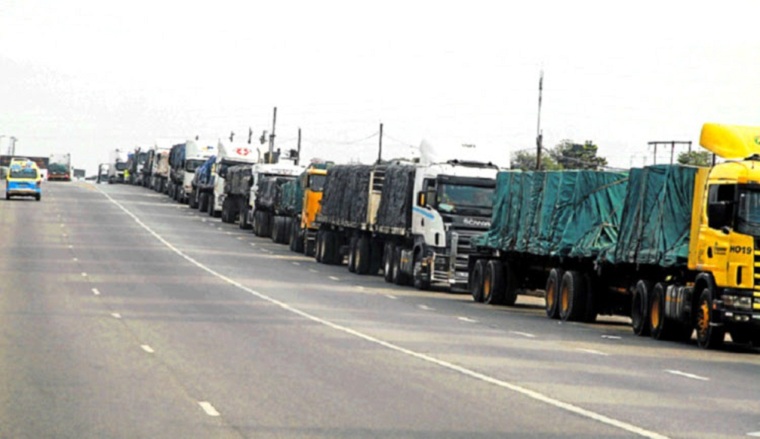 The transport and freight forwarding industries have called for urgent intervention at the Beitbridge border post between South Africa and Zimbabwe “where a humanitarian disaster is unfolding, at the same time creating a potential Covid-19 catastrophe which also threatens a cholera outbreak”.
The transport and freight forwarding industries have called for urgent intervention at the Beitbridge border post between South Africa and Zimbabwe “where a humanitarian disaster is unfolding, at the same time creating a potential Covid-19 catastrophe which also threatens a cholera outbreak”.
Federation of Eastern and Southern Africa Road Transport Associations (Fesarta) CEO Mike Fitzmaurice said in a statement on Saturday that Covid-19 regulations and restrictions introduced at the beginning of December had severely compromised the flow of traffic through both sides of the border post.
“There is only one place for testing with a single entry and exit point, creating a massive bottleneck that stretches from Musina (Limpopo) on the South African side to the border post, and for more than 20 km on the Zimbabwe side,” he said.
In an open letter to Health Minister Dr Zweli Mkhize, the organisations called for urgent intervention, outlining the grave conditions, but had to date not received a response from the minister.
“The congestion, aggravated by the annual increase in traffic at this time of the year, has already cost South Africa lost revenue. During the first three weeks of December, the cost of delays at Beitbridge was almost R88 million per week. Queue time delays for trucks amounted to R609 million per week, amounting to R2 092 860 000 to date,” Fitzmaurice said.
“These losses to the South African economy add to the massive R442 million already lost during the 27-day blockage to northbound traffic that took place in November,” chairperson of the South Africa Association of Freight Forwarders (SAAFF) Dr Juanita Maree said in the statement.
Maree said truck drivers in the queues had run out of food, had no water for drinking or washing, and there were no toilet facilities. Criminals were looting and stealing from the trucks and drivers had given up hope of getting home to be with their families, while sitting in unbearable heat of more than 40 degrees, she said.
Fitzmaurice said reports of corruption were rife with some traffic officials said to be accepting bribes of R1000 from drivers who jumped the queue.
Maree believed that the way to decongest the border – the one testing point was open during the day only – was to suspend Covid-19 testing for drivers and close the border at night for travellers and bus traffic.
“The southbound trucks with no loads should then be moved across in batches alternating with loaded trucks. The northbound truck traffic can be pushed through at night.
“The situation is desperate as this disaster is having a severe impact on supply chains throughout Africa. Much needed goods – including essential items – are simply not reaching their destination. There is no quick solution but if government is willing to partner with the private sector we can restore the smooth flow of goods and people across the border, preventing a humanitarian disaster and the economic collapse of the region,” she said.-ANA
(42 VIEWS)






0 Comments